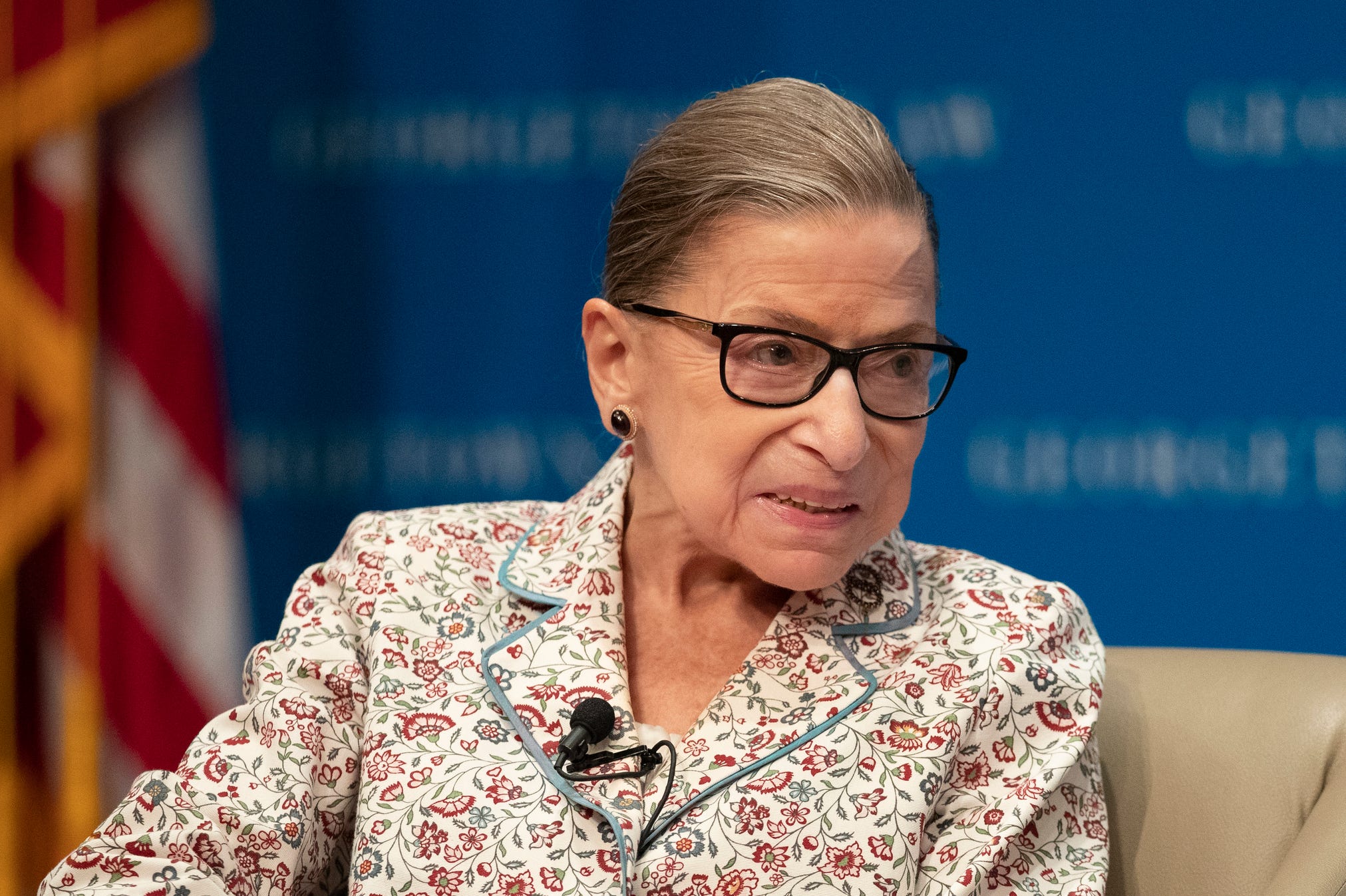
The Republican race to replace Ruth Bader Ginsburg
The GOP held up hearings for President Obama's Supreme Court nominee in 2016. But it's a different story for President Trump's nominee in 2020.
WASHINGTON – Senate Majority Leader Mitch McConnell on Monday said the Senate had more than enough time to confirm a new Supreme Court Justice before the election after Ruth Bader Ginsburg's death on Friday.
The Kentucky Republican outlined the short timeline on which other Supreme Court Justices were confirmed by the body, noting that while there was 43 days until the election, "the Senate has more than sufficient time to process a nomination."
"As of today, there are 43 days until November 3 and 104 days until the end of this Congress," McConnell said, noting that Justice John Paul Stevens was approved by the Senate in 19 days after the White House formally received his nomination in 1975 and Justice Sandra Day O'Connor's nomination took only 33 days to be approved by the body in 1981.
While McConnell noted there was time to take up the nomination before the election, he did not say the Senate definitively would vote before Nov. 3.
He added that Ginsburg's own nomination was approved by the Senate in 1993 in 42 days.
"Justice Stevens' entire confirmation process could have been played out twice — twice between now and November 3 with time to spare, and Justice Ginsburg herself could have been confirmed twice between now and the end of the year," McConnell said. "The Senate has more than sufficient time to process a nomination. History and precedent make that perfectly clear."
All of the nominations listed by McConnell, while they moved quickly, were also bipartisan. All of the nominees were approved nearly unanimously by the Senate – a feat that is nearly impossible in today's deeply partisan U.S. Senate.
More: What we know about how Ruth Bader Ginsburg will be replaced on Supreme Court
More: Here are the senators to watch in the fight over filling Ruth Bader Ginsburg's seat on the Supreme Court
Skepticism has grown over whether a nominee could pass through the lengthy vetting process before November, leaving many to believe a vote could be pushed to the "lame duck" session between Election Day and a change of congressional power on Jan. 3. But Republicans control much of the process and could attempt to push through the nomination before November, making it an even bigger focus in the upcoming election.
Sen. Lindsey Graham, R-S.C. and chairman of the Senate Judiciary Committee — the panel tasked with examining judicial nominations — wrote a letter to Democrats on the committee Monday, where he vowed to "proceed expeditiously to process any nomination made by President Trump to fill this vacancy."
Recent Supreme Court nominees have taken at least two months to make it through the Senate Judiciary Committee and receive a full Senate vote. Push back from Democrats and any hurdles in the nominee's background could lengthen that process.
Democrats have already vowed to use every tool at their disposal in attempting to halt the nomination from moving forward before the November election.
"Leader McConnell and the Republican Senate majority have no right to fill it," Senate Minority Leader Chuck Schumer, D-N.Y., said on the Senate floor Monday. He has vowed to take revenge if Republicans move forward, telling Democratic colleagues on a call Saturday that "nothing is off the table for next year," according to a source on the call.
More: Donald Trump says he'll 'probably' announce Supreme Court by Saturday
More: Trump, Democrats thrust Supreme Court fight forward as a central issue in November election
Schumer noted a number of Republicans who previously said the Senate should wait until after an election should a vacancy open so close to voters casting their ballots.
"How could we expect to trust the other side again if when push comes to shove, when the stakes are the highest, the other side will double cross their own standards when it's politically advantageous," he said. "Tell me how this would not spell the end of this supposedly great deliberative body."
Republicans cannot lose four votes due to their slim 53-47 majority in the Senate and already at least two have said they do not support taking up the nominee before the election. Sens. Lisa Murkowski, R-Alaska, and Susan Collins, R-Maine, have both said they want voters to have a say in filling the vacancy and the Senate shouldn't approve Trump's nominee before November.
McConnell on Monday did not say whether he believes Republicans will have the votes needed to approve a nominee put forth by Trump, who he says could be named later this week. But McConnell did vow to hold a vote..
"President Trump's nominee for this vacancy will receive a vote on the floor of the Senate," he said.
tinyurlis.gdu.nuclck.ruulvis.netshrtco.de
مقالات مشابه
- جت های 2020 NFL schedule: اسکناس, درب بازکن, دوشنبه nighter در برابر تام برادی-کمتر Pats
- 12 نفر بر اثر طوفان قدرتمند فیلیپین کشته شدند
- در یک نمودار به عنوان S&P 500 موج از ماه مارس پایین فرار سرمایه گذاران محبوب ترین سهام بازار-صندوق—در اینجا چیزی است که یک تحلیلگر می گوید که به معنی
- جی پی مورگان چیس سهامداران شکست برای اطلاعات بیشتر تماس بگیرید تغییر آب و هوا در افشای بزرگترین روغن حامی مالی
- شرکت صادرات و واردات کالاهای مختلف از جمله کاشی و سرامیک و ارائه دهنده خدمات ترانزیت و بارگیری دریایی و ریلی و ترخیص کالا برای کشورهای مختلف از جمله روسیه و کشورهای حوزه cis و سایر نقاط جهان - بازرگانی علی قانعی
- کارتن اسباب کشی - تحویل فوری - پرداخت درب منزل - 09106682342
- مطالعه می یابد سیارک تاثیر نمی آتشفشان زمین غیرقابل سکونت برای دایناسورها: "تنها توضیح قابل قبول'
- مبل شنی به محض، مبل شنی دو بار: 3 توضیح چرا شما نباید مبل شنی The Third زمان
- Instagram مدل ادعای او در حال حاضر 'دعوت کردم به NBA حباب'
- دانلود Pdf آموزش ICDL